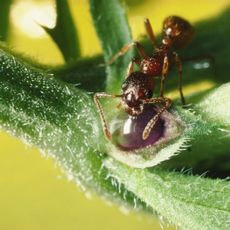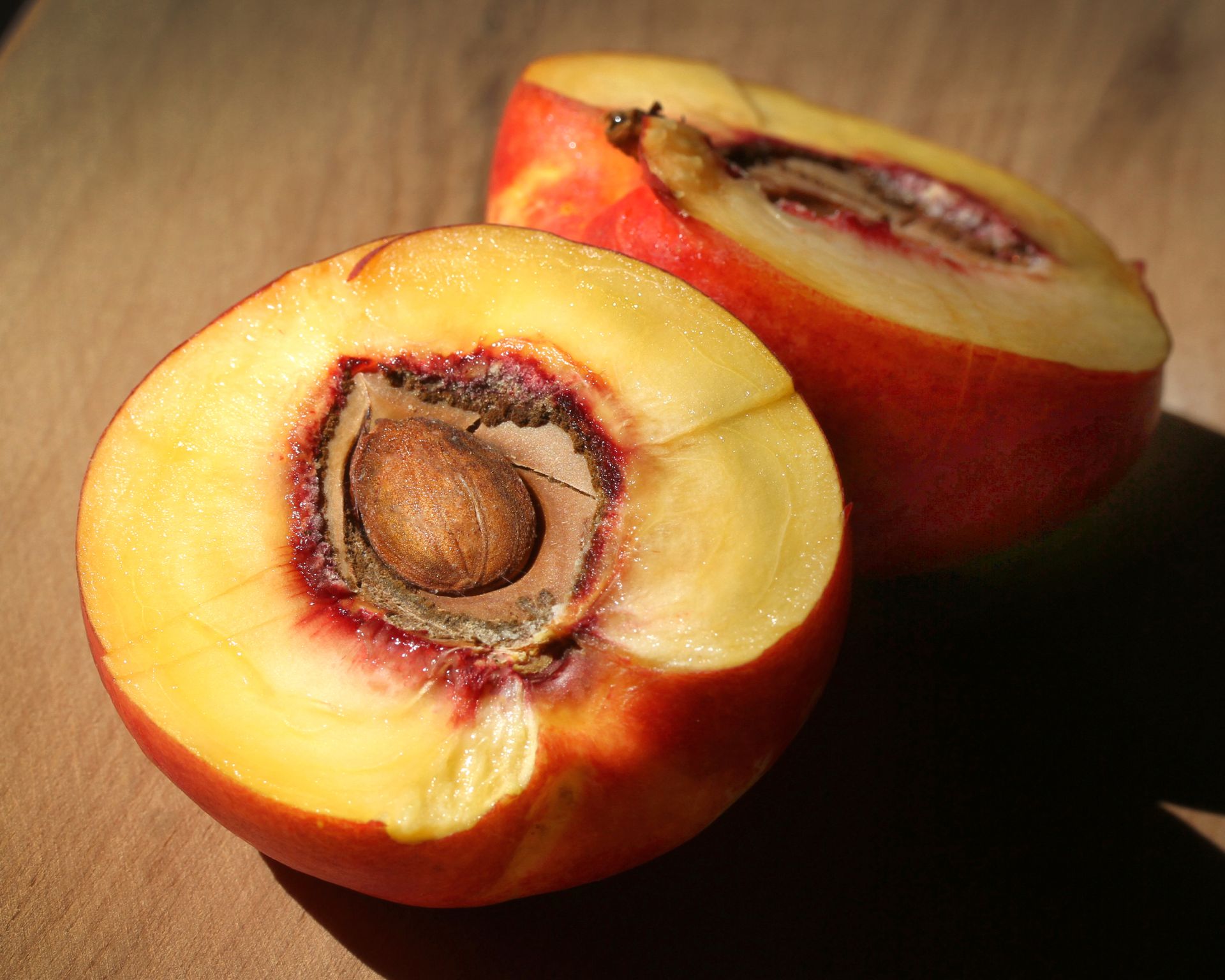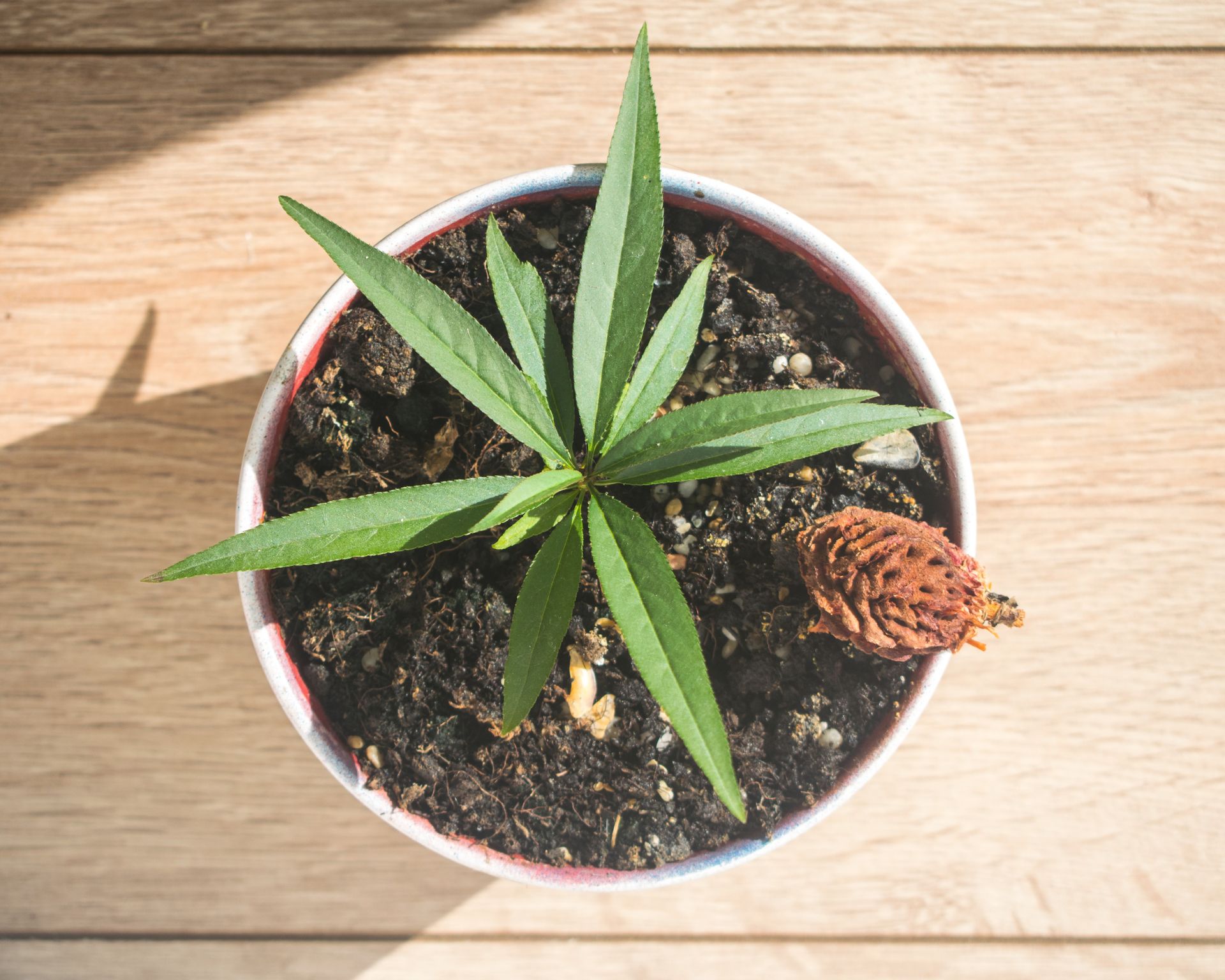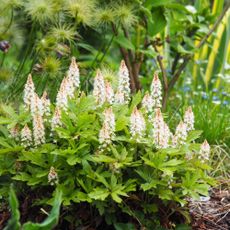How To Plant A Peach Seed To Grow Your Very Own Tree From Seed
Ever wondered how to plant a peach seed? Here's everything you need to know to grow a peach tree from a pit. Plus, our top tips for success.


Many a gardener have wondered how to plant a peach seed after they've enjoyed one of these delicious summer fruits. While they may not look or taste just like the originals, it is possible to grow peaches from a pit. It will take several years before fruiting occurs and, in some cases, it may not happen at all. But with some expert knowledge and a little luck, you can grow a peach tree from seed.
Can You Grow a Peach Tree From a Pit?
Many hopeful gardeners have been there. We eat a particularly tasty apple, plum, or peach and we wonder if we can grow the leftover seed into a tree full of more of this delicious fruit. I mean, who hasn't tried to sprout an avocado in a glass of water?
But sadly, in most cases the plants from our at-home experiments either don't fruit or develop fruits that are nothing like the one we ate. That doesn’t mean you can’t save a peach seed for planting, though. You just have to follow a few steps to ensure your seed actually grows fruit you want to eat.
Most of us are familiar with growing plants from seed. It is often one of the easiest ways to produce a plant. But certain plants are grown from rootstock or other methods.
Most peach trees are grafted, meaning they are developed off a desired rootstock and scion. Such a union produces plants with better traits, but it also means that growing a seed from a grafted tree won't result in an identical fruit.
That's why it's important to choose the right peach seed to start. Regrowing store-bought kitchen scraps may yield spotty results. For the best chance of success, use organic peaches from the grocery or better yet, peaches from a known non-grafted variety.
Preparing Peach Seeds for Planting
Growing a peach tree from seed requires some preparatory steps. Although you can plant a peach pit directly in the soil during fall and wait for spring germination nature's way, it's more effective to store the seed until late fall or early winter and induce germination with a process called stratification.
Gardening tips, videos, info and more delivered right to your inbox!
Sign up for the Gardening Know How newsletter today and receive a free download of our most popular eBook "How to Grow Delicious Tomatoes."
Stratification is just recreating the winter conditions a seed would receive if it fell to the ground and sprouted naturally. It helps seeds break dormancy and encourages germination.
But before you can stratify your seeds, you have to extract them. Dry the pits from your peaches on the counter for several days. Once dry, use a nutcracker or pliers to extract the true seed inside. It looks similar to an almond.
If you are propagating in fall, you can either plant the seed directly into a prepared bed outdoors, or place the seed into a refrigerator for four months. Keep temperatures in the 32-45 degrees Fahrenheit ( 0-7 C) range.
How to Germinate Peach Seeds
After a month in the fridge, remove the seeds and soak them overnight. Then place them in in a plastic baggie filled with moist potting soil and put it back into the refrigerator. You can also put the seeds in a damp paper towel inside a closed baggie.
Check the seeds every month. Germination can take anywhere from a few weeks to a few months—if you're lucky. In fact, they may not germinate at all so it's best to try several varieties. Eventually, one will germinate. Once seeds do sprout, keep them in the refrigerator until outdoor temperatures warm enough to plant out your new seedlings.
How to Plant a Peach Seed
Peach seeds require well-draining soil with an average pH. Typical bagged potting soils work well. Once your seeds have plenty of roots, plant them in pots five weeks before the last frost date in your area.
Plant the seeds twice as deep as their length, about 3 to 4 inches (8-10 cm) deep. Be careful not to break any of the roots as you place the seeds in the soil and water well to help the seeds to settle it in.
Transplanting Peach Seedlings Outdoors
The best time to transplant peach seedlings is in early spring. Before transplanting seedlings outdoors it's best to move them outside for a few hours each day, increasing the length of time over the course of a week. This process of hardening off seedlings helps them adjust to outdoor conditions before you plant them in their final location.
Choose a full sun location and check the soil. Amend the soil with plenty of organic matter and ensure it drains freely, loosening the soil to a depth of 1 foot ( 30 cm). Dig a hole twice as deep and wide as the root mass. Gently fluff out the roots and backfill with soil. Tamp down the soil gently and water well.
Growing a peach tree from seed isn't difficult once you've gotten through the germination process. Some peach pits germinate quickly and easily and some take a little longer—or may not germinate at all. Whatever the case may be, don't give up. After that first big hurdle, you can treat transplants like any other fruit tree.
With a little persistence and trying more than one variety, growing peaches from seed is well worth the effort. Of course, then there's the wait for fruit (up to three years or more). But remember, patience is a virtue!
Frequently Asked Questions
Can You Plant a Peach Seed Directly in Soil?
If you are wondering how to grow a peach seed outdoors, the answer is simple. In regions with cooler climates, where freezing temperatures are the norm, a peach seed may be directly installed into a garden bed.
Nature will provide the stratifying conditions necessary for germination when temperatures warm. Make sure to provide some protection from squirrels and other animals that might dig up the seed.
How Long Does It Take for a Peach Tree to Grow From Seed?
Germination can take up to 3 months or more, so be patient. Then the actual stems and leaves will not appear until spring. It will likely take at least three to four years before you can start harvesting peaches from your new tree.
Don’t be surprised if the fruit is different than the original, too. A tree grown from seed will probably produce different fruit from the original. To get a closer product to the peach you ate, bud graft your desired peach variety to the seed-grown tree.

Bonnie Grant is a professional landscaper with a Certification in Urban Gardening. She has been gardening and writing for 15 years. A former professional chef, she has a passion for edible landscaping.
- Nikki TilleySenior Editor
- Laura WaltersContent Editor
-
8 Low-Maintenance Shade Plants: Brighten Up Forgotten Corners With These Easy-Care Beauties
Embrace the darker side of gardening with minimal effort – our pick of low-maintenance shade plants will give little trouble and provide maximum joy.
By Bonnie L. Grant
-
 What Is A Nectary? Where To Find Them And Why They Matter To Wildlife
What Is A Nectary? Where To Find Them And Why They Matter To WildlifeA nectary is a vital part of many flowering plants that attracts pollinators and benefits everybody.
By Tonya Barnett



